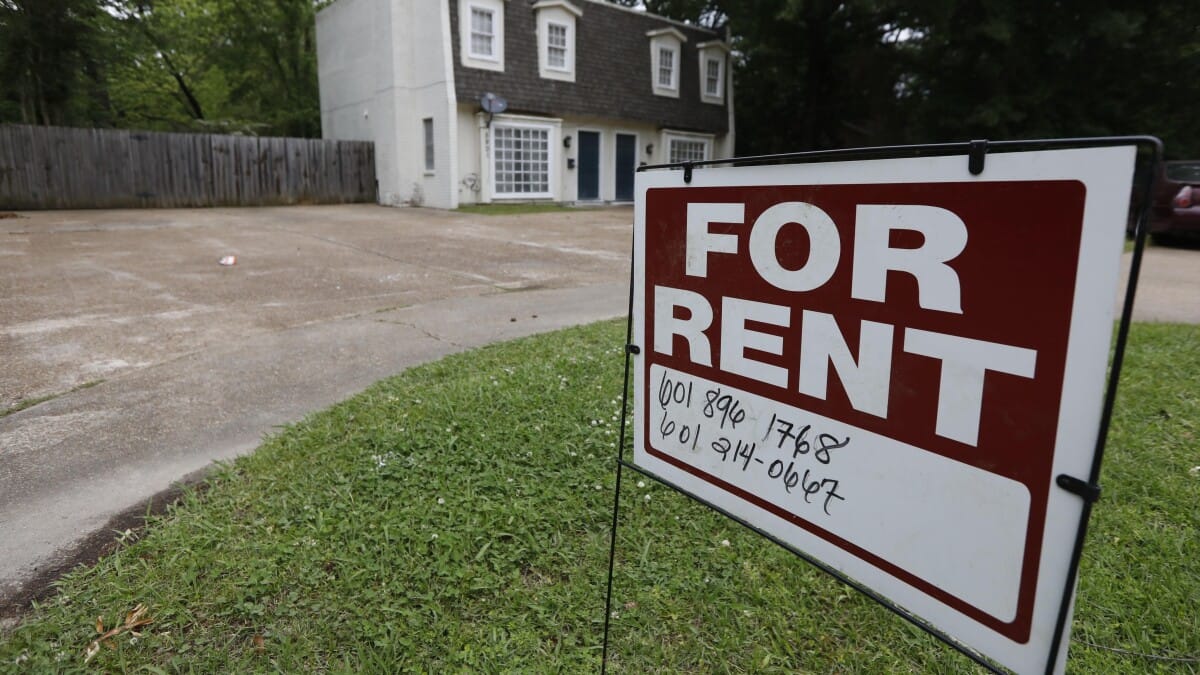Arizona is experiencing an influx of new residents, leading to increased competition for rental housing and potential rent hikes. As a tenant, it’s essential to understand the laws governing how and when your landlord can increase your rent. This article will explain Arizona’s rent increase regulations, your rights as a tenant, and what to do if you believe your landlord is acting unfairly.
Absence of Rent Control in Arizona
It’s important to understand that Arizona has no statewide rent control laws. Rent control is a form of legislation that places limits on how much landlords can increase rent within a specific period. In Arizona, landlords have significant freedom in determining rental prices, often basing decisions on market trends and comparable rental rates in the area.
How Much Can My Landlord Raise the Rent?
Unfortunately, Arizona law does not impose a cap on the amount a landlord can increase rent. This means a landlord can technically raise it by any amount they deem appropriate. However, most landlords try to remain competitive with market rates to avoid tenant turnover and vacancies.
Required Notice Periods
A crucial aspect of Arizona’s rent increase laws is the requirement for landlords to provide tenants with adequate notice before a rent increase takes effect. The notice period depends on your lease type:
- Month-to-Month Tenancy: Landlords must provide at least a 30-day written notice.
- Fixed-Term Lease: Landlords generally cannot raise the rent during a fixed-term lease unless the lease agreement specifically includes a provision for rent increases.
Prohibited Reasons for Rent Increases
Arizona law prohibits landlords from raising rent for discriminatory or retaliatory reasons:
- Discrimination: Landlords cannot increase rent based on protected characteristics like race, religion, sex, national origin, familial status, or disability.
- Retaliation: Landlords cannot increase rent in retaliation for a tenant exercising their legal rights, such as reporting housing code violations, requesting repairs, or joining or forming a tenants’ union.
When Can a Landlord Increase Rent?
Here’s a breakdown of when a landlord can generally increase your rent in Arizona:
- During a Fixed-Term Lease Rent typically remains consistent throughout a fixed-term lease (e.g., a one-year lease). However, if your lease specifically includes language allowing for a rent increase during the fixed term, your landlord can raise the rent under those agreed-upon terms.
- Month-to-Month Tenancy Landlords have more flexibility to increase rent with a month-to-month tenancy. They can raise the rent at any time, provided they issue a 30-day written notice in advance.
Challenging a Rent Increase
If you believe your landlord is raising the rent excessively or for an unlawful reason, there may be a few options available:
- Negotiation: Try communicating with your landlord directly and express your concerns. See if there’s room to negotiate a lower increase.
- Seek Legal Advice: Consult an attorney specializing in landlord-tenant law to understand your specific rights and explore possible legal remedies.
- Consider Alternative Housing: If you find the rent increase unreasonable and can’t arrive at a solution with your landlord, you might need to consider looking for more affordable housing options.
Additional Tenant Protections and Resources
Here are resources for tenants in Arizona facing rent increase issues or other landlord-tenant disputes:
- Arizona Tenants Advocates (ATA): https://www.arizonatenants.com/ (Provides information and resources)
- Community Legal Services (CLS): https://clsaz.org/ (Offers legal assistance for low-income residents)
- Arizona Attorney General’s Office: https://www.azag.gov/ (Handles consumer protection complaints)
- Arizona Department of Housing: https://housing.az.gov/
Tips For Tenants Facing Rent Increases
- Know Your Market Value: Research comparable rental properties in your area using online resources like Zillow or Apartments.com. This information can strengthen your position if you decide to negotiate with your landlord.
- Document Everything: Keep clear records of all communication with your landlord, including emails, letters, and text messages. Document any instances of needed repairs or housing code violations. This will be crucial if you need to take further action.
- Consider Your Options: If the rent increase is within market value but still difficult to afford, you might consider: * Getting a roommate: Sharing your space can significantly reduce your housing costs. * Downsizing: Consider if you can comfortably live in a smaller or less expensive place. * Relocation: Explore neighborhoods with more affordable rental options, balancing the rent savings against potential additional commuting or relocation costs.
Further Considerations: Mobile Home Tenants
Arizona does have a specific law addressing rent increases for tenants who own their mobile homes but rent the land in a mobile home park:
- Mobile Home Relocation Fund (A.R.S. § 33-1476.04): This fund may provide financial assistance to eligible mobile home tenants facing significant rent increases (over 10% in a 12-month period plus the Consumer Price Index increase). Tenants must meet specific criteria and apply for assistance.
Important Reminder: Arizona landlord-tenant laws can be complex, and specific situations might require legal advice. Don’t hesitate to consult with the resources listed earlier for more detailed guidance.
Sources
It’s crucial to solidify the article’s credibility by referencing the appropriate Arizona statutes and reliable sources. Here’s the relevant information:
- Arizona Revised Statutes (A.R.S) Title 33, Chapter 11 – Landlord and Tenant: https://www.azleg.gov/ars/33/01301.htm
- Arizona Tenants Advocates (ATA) – Lease Renewal and Rent Increases: https://www.arizonatenants.com/help-article/lease-renewal-and-rent-increases
- Steadily – How Much Can a Landlord Raise Rent in Arizona: https://www.steadily.com/blog/how-much-can-a-landlord-raise-rent-in-arizona
- DoorLoop – Arizona Rent Control Laws (2024) | The Complete Guide: https://www.doorloop.com/laws/arizona-rent-control-laws
Call to Action
Finish the article with a call to action that empowers tenants and encourages them to advocate for themselves:
Conclusion
Navigating rent increases as a tenant can be stressful. Remember, knowledge of the laws and awareness of your rights is your greatest asset. If you’re facing a rent increase, don’t hesitate to seek help and support from the resources available. By being informed and proactive, you can position yourself more effectively throughout the process.



